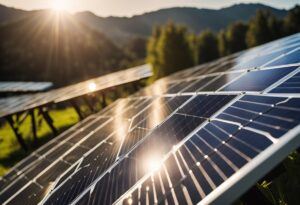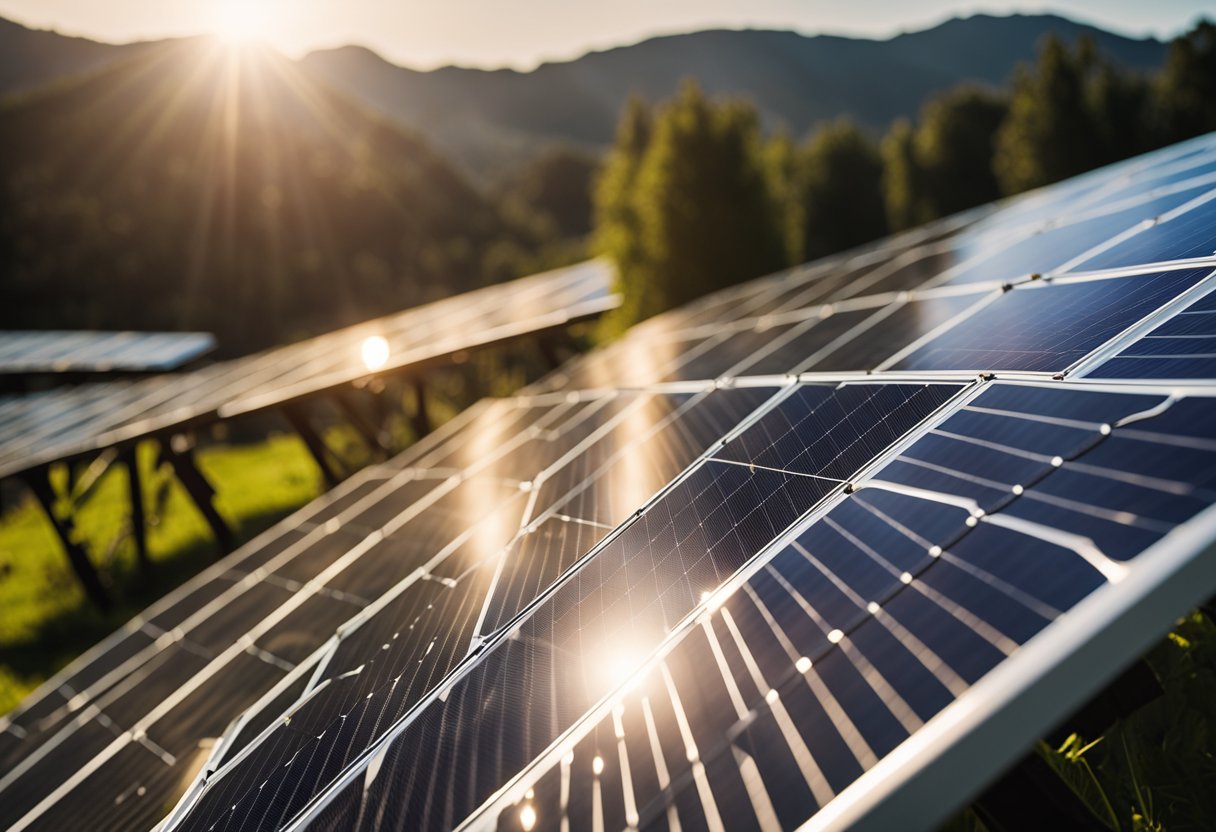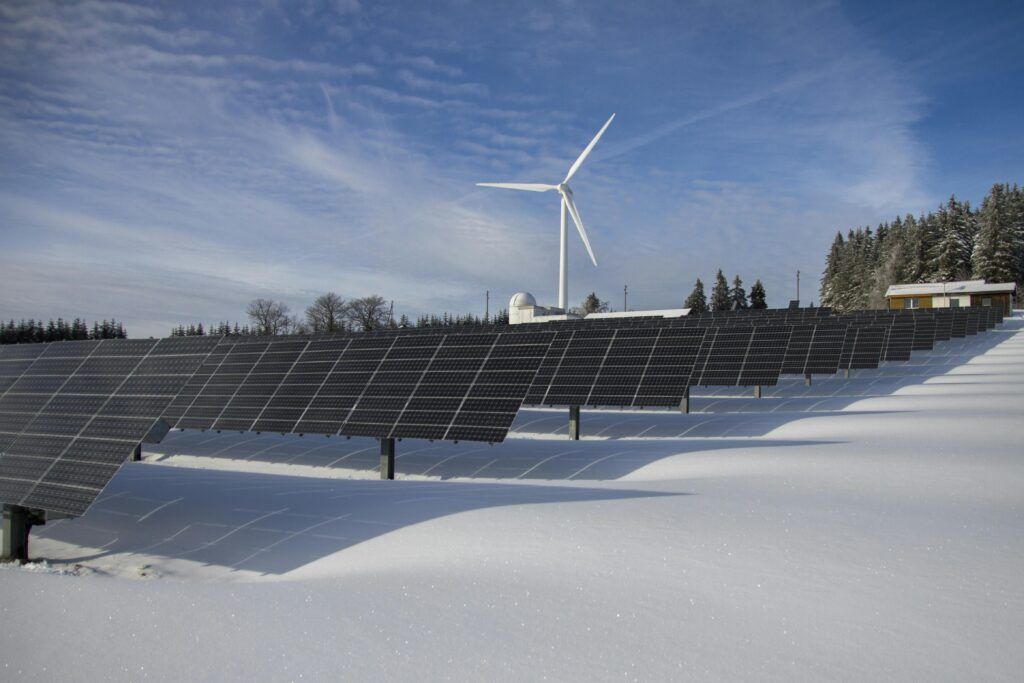- Explore the pros cons solar energy in our comprehensive guide. Understand the environmental benefits and financial implications of solar power for informed decisions
Explore the pros cons solar energy in our comprehensive guide. Understand the environmental benefits and financial implications of solar power for informed decisions

Solar energy, a form of renewable energy, has gained significant attention in recent years as people seek cleaner and more sustainable ways to power their homes and businesses. Understanding the pros and cons solar energy is crucial as the world moves towards reducing its dependence on fossil fuels. Solar energy presents itself as a viable option, but like most technologies, it needs to be carefully considered before deciding if it is the right choice for a particular situation and weighing up the pros cons solar energy.
One of the key advantages of solar energy is its abundant and virtually limitless nature. The sun produces more than enough energy to meet the world’s requirements, and harnessing this clean source can lead to a significant reduction in greenhouse gas emissions. Additionally, solar panels typically have a long lifespan, require minimal maintenance, and provide for a quiet and low-impact energy generation method.
On the other side of the coin, some challenges still need addressing when it comes to solar energy. The most notable is its intermittent nature, as energy generation largely depends on sunlight availability. This makes energy storage systems crucial for continuous power supply. Moreover, some individuals may consider the high initial capital cost of installing solar panels a disadvantage. Nevertheless, these costs can be recuperated over time through energy savings and possible government incentives where available.
Understanding the Pros Cons Solar Energy: Advantages and Disadvantages
Advantages of Solar Energy
Environment-Friendly
One of the primary benefits of solar energy, a key aspect in the pros cons solar energy debate, is its eco-friendly nature. Solar power stands as a sustainable energy source that significantly reduces greenhouse gas emissions and carbon emissions. By harnessing sunlight, solar panels generate electricity in a way that contributes to combating climate change, thereby preserving the earth’s environment. The advancement of solar technology enhances efficiency while reducing pollution, making it an excellent option for lowering the human impact on the planet.
Financial Benefits
Solar energy systems provide a sound investment due to their long-term savings and financial benefits. Installing solar panels can significantly reduce electricity bills by utilising sunlight, a renewable energy source, instead of relying on utility companies. Solar power may also offers various incentives, tax benefits and solar renewable energy credits. A return on investment (ROI) can be obtained within a few years considering these factors and the low maintenance costs associated with solar technology.
Independence From the Grid
Energy independence can be achieved by installing solar systems with solar batteries, allowing for off-grid living. Homeowners can become self-sufficient by utilising solar energy storage and reducing reliance on utility companies. Furthermore, net metering and smart export guarantee schemes can grant the opportunity to sell excess generated power back to the grid, leading to additional financial benefits.
Improvement in Property Value
Home value enhancement is evident with the addition of solar panels, as they are considered a desirable, cost-saving feature by many property owners. Solar energy systems increase home values due to their efficiency, environmentally friendly nature, reduced utility bills, and potential for energy independence. Overall, solar power significantly benefits both the environment and homeowners’ financial situations.
Disadvantages of Solar Energy
Upfront Costs and ROI
One of the most significant disadvantages of solar energy, and a crucial aspect in the pros cons solar energy debate, is the high upfront cost. Solar panel installation requires a substantial initial investment, primarily due to the expenses associated with photovoltaic cells and other essential components. This factor makes it challenging for some individuals to justify the expenditure, especially if they are on a tight budget. While solar energy systems can lead to significant savings on electric bills in the long run, the return on investment (ROI) may take several years to materialise.
Moreover, maintenance costs, such as cleaning and rarely parts replacement, can add to the overall expenses. Prices of solar panels have been decreasing, but the initial cost might still be a deterrent for some potential adopters. Furthermore, acquiring a loan or payment plan to finance the solar energy system might not be accessible to everyone.
Dependence on Weather
Another critical point in the pros cons solar energy discussion is its dependence on the weather. Since solar panels rely on sunlight to generate electricity, their efficiency fluctuates with climatic conditions. In areas with less sun exposure or during periods of prolonged cloudiness and rainfall, solar energy production can be significantly reduced. While solar panels can still produce power on cloudy days, the output is suboptimal compared to clear, sunny days.
This dependence on weather becomes more pronounced when considering seasonal variations in sunlight, such as the shorter days during winter months. Therefore, it’s essential to evaluate the climate of the installation site to gauge the feasibility of a solar energy system.
Storage and Space Limitations
Solar energy storage can be another concern in the pros cons solar energy analysis. Since solar power production is intermittent, having an efficient solar battery storage system is crucial to ensure consistent power supply during periods with low sunlight. However, these storage solutions can be expensive and may require regular maintenance, further adding to the overall cost.
Space constraints and roof type can also be an issue when it comes to solar panel installation. Some rooftops might not have the optimal size, angle, or structural integrity to accommodate a solar energy system. Additionally, for those living in urban environments or multi-storey buildings, finding adequate space for the solar panels might be a challenge.
Furthermore, manufacturing and recycling of solar panels can also lead to some environmental concerns. The production process often requires scarce materials, which could raise questions about sustainability. Proper recycling of solar panels at the end of their life cycle is necessary to prevent adverse environmental impact.
Conclusion: Pros Cons Solar Energy
In conclusion, the pros cons solar energy stands as a pivotal solution in our quest for a sustainable future. Its ability to provide clean, renewable energy while offering financial and environmental benefits makes it an attractive option for homeowners and businesses alike. While there are challenges to overcome, such as the intermittent nature of solar power and the initial investment required, the long-term advantages far outweigh the drawbacks.
By investing in solar energy, we are not just saving on electricity bills; we are contributing to a global movement towards cleaner, more responsible energy use. The potential for energy independence, combined with the positive impact on property values and the environment, makes solar energy a wise choice for a brighter, greener future.But again we must weigh up the pros cons solar energy.
Join the solar revolution today, contribute to a greener planet, and reap the financial rewards for years to come. The future is bright, and it’s powered by solar energy!
Please feel free to reach out here for a free desktop energy survey!
Learn more about our expertise in analysing the pros cons solar energy on our About Us page



